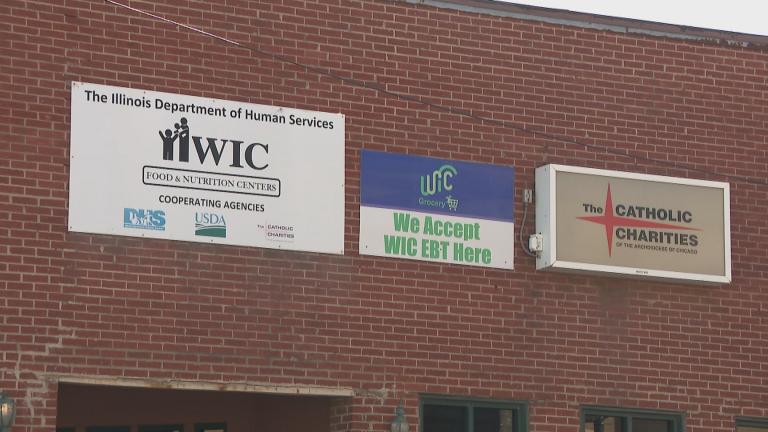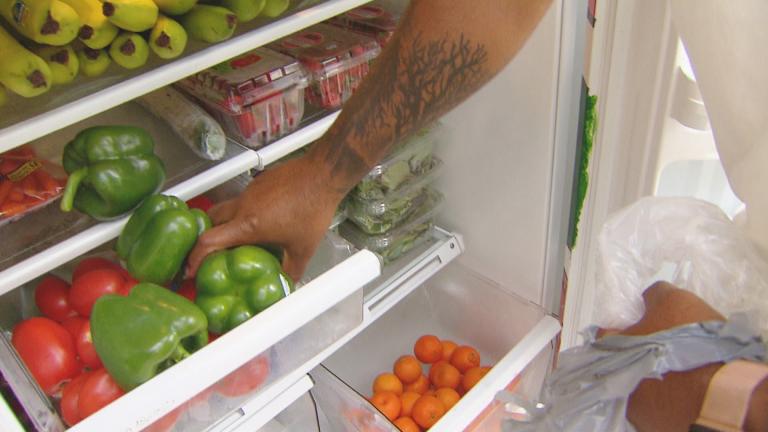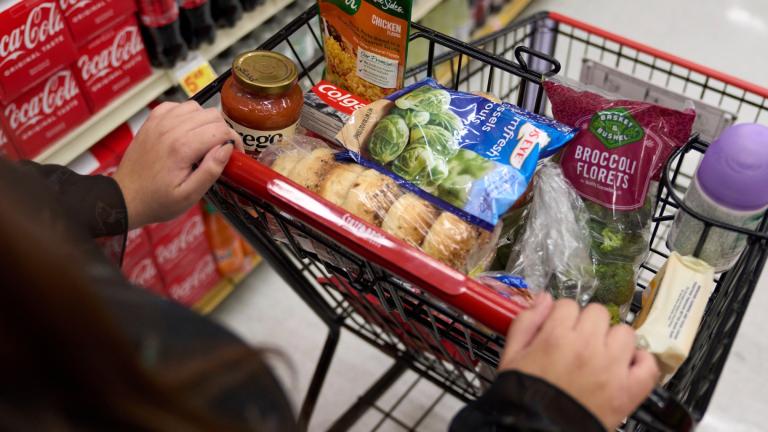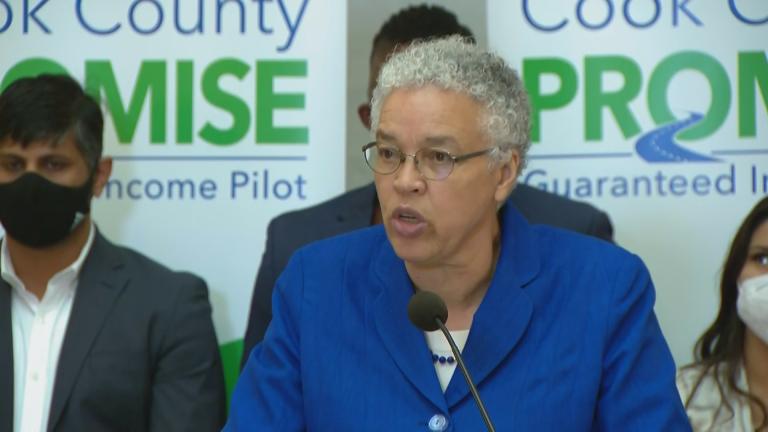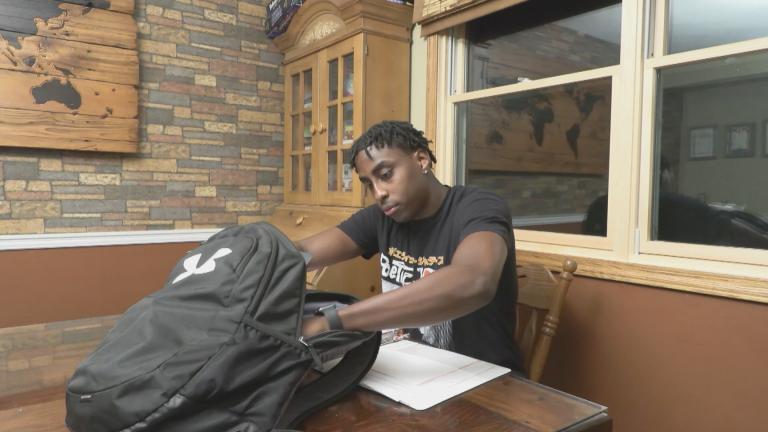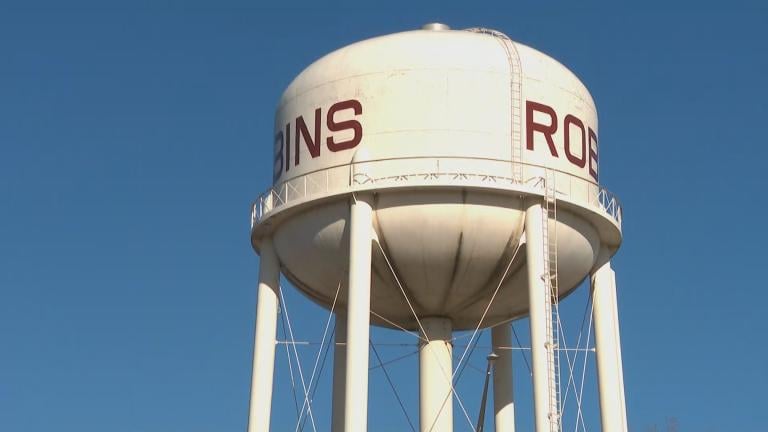Sixty years ago this month, President Lyndon B. Johnson declared a “war on poverty.”
In his State of the Union speech on Jan. 8, 1964, he sought to rally Americans and Congress to his cause.
“Many Americans live on the outskirts of hope. Some because of their poverty and some because of their color. And all too many because of both,” Johnson said. “This administration today here and now declares unconditional war on poverty in America."
As the 60th anniversary of the war on poverty approaches, the Shriver Center on Poverty Law is hosting a one-day poverty summit on Jan. 18, bringing together a diverse group of academic, community and government leaders to discuss the policies, systems and structures that perpetuate poverty in America.
Below is a discussion with Audra Wilson, president and CEO of the Shriver Center on Poverty Law. (The interview has been edited for length.)
WTTW News: You have a one-day poverty summit later this month designed to coincide with the 60th anniversary of Lyndon Johnson’s war on poverty. How much did the war on poverty achieve?
Wilson: So that’s a challenging question, but it was very significant. The impact of the war on poverty is mixed. So we know that with the war on poverty declaration of President Lyndon Baines Johnson in his State of the Union address he wanted to wage this unconditional war on poverty because at the time you had nearly 20% of Americans who were living in poverty. So he had introduced very sweeping social welfare legislation that had sought to help end poverty in the United States.
There were major, major anti-poverty programs that still exist today that were formed. Then there were many policies that were put in place after his declaration that still exist today, including the earned-income tax credit, which came in the 1970s and the child tax credit. And these are things that keep millions of children and families out of poverty.
So in that sense, these are major, major accomplishments. And since 1964, the overall poverty rate has fallen significantly. The average incomes of the poorest fifth of Americans has risen significantly. We’ve seen a drop in infant mortality and we’ve seen a drop in severe child malnutrition, which people don’t even think happens in the United States but it does. And I would say to you that we have a much stronger safety net, comparatively speaking, than we did before. So there are huge, huge accomplishments that were made.
The reason why I say it’s mixed though is because on the negative side, we still see high rates of poverty. There are millions of Americans who are still having trouble feeding themselves and keeping a roof over their heads. Poverty, particularly child poverty, is very, very high compared to other wealthy nations because our safety net program does a lot less to lift people out of poverty than those of other Western nations.
And perhaps the most disturbing thing about this is that there is a clear overrepresentation of people of color living in poverty. And that’s because of a couple of reasons. No. 1, the war on poverty was focused on helping individuals instead of dismantling the systems that were designed to marginalize people. And those are systems that were designed to marginalize people of color. That’s what also makes the United States’ poverty very different from poverty in other countries because there’s not poverty across all walks of life. There are White people and Black people and Latinos and Asians and lots of people living in poverty. But American poverty is unique because of that connection with racism and institutionalized discrimination.
Many people would argue that systemic racism has been apparent in this country for a very long time. What would you identify as being the biggest obstacles to progress?
That’s a tough question to answer because I think it’s multifaceted. We still have an identity problem I would say in our country in the way that we talk about poverty. For one thing, we still have a conception of poor people and we still talk about poverty in terms of peoples’ moral failings. You and I are talking about systems, but I don’t think that’s actually a very common conversation when we’re speaking publicly about poverty…. We know there are many, many people in all different walks of life who avail themselves of receiving public benefits.
But we continue to perpetuate the notion of public benefits and make it something that people of color — and in particular Black people were taking advantage of. That trope of the Cadillac driving welfare queen that President Reagan literally made up — because that person didn’t exist and that has been debunked a thousand and one times — still persists.
We know that when you make targeted investments in a population, they can have a very positive yield in the United States. For example, the G.I. Bill with soldiers coming back from World War II. So we have incontrovertible proof that you can make a targeted investment and you can really uplift an entire population. And we’ve done it here in the United States.
The problem that we have is that we still have a racial problem
because the very same bill that was supposed to be applicable to everybody, because it could be administered state by state, was not properly and fairly administered to Black G.I.s. So they did not reap the benefits as much as their White counterparts.
What’s so unique about American poverty and American economic challenges is that we do not want to recognize the fact that we’re being hypocritical. We don’t have a problem with certain kinds of investments at all. We have a problem in the type of people or the specific people in whom we’re investing.
How do we confront the fact that much of the systemic racism we see is driven by the profit motive, the fact that people make money from it?
Well, that is a harder piece. It’s interesting because Matthew Desmond (Author of “Poverty, By America,” and “Evicted,” who will be the keynote speaker at the summit) talks quite a bit about who benefits from the practices that keep people poor.
He basically says that there are three American habits that perpetuate poverty. One is exploiting poor people, one is subsidizing rich people and then one is intentionally segregating the rich and the poor so that so those who are rich could hoard and there’s little social mobility among those who are not. Now, obviously, you have to be mindful when you have that conversation publicly because then it kind of goes into the class wars and the “haves” and the “have nots.”
There are so many ways in which we take advantage of people who are poor and we don’t even think of it as taking advantage of them because we’re not being honest with ourselves. So, I think we have to be willing to talk about the fact that, yes, we do exploit people who are poor in ways that we may not even think it is exploitation. And we do have to think about the ways in which we subsidize people who are more affluent.

